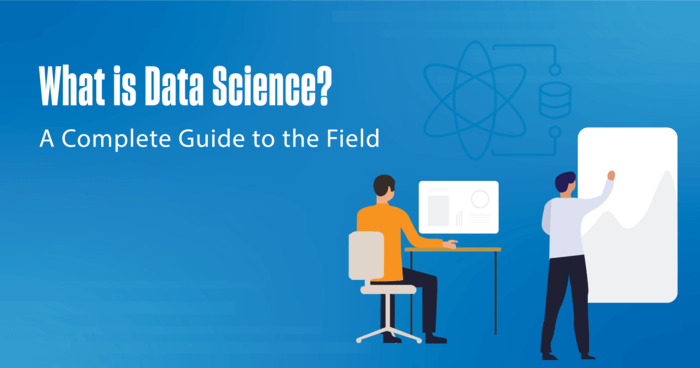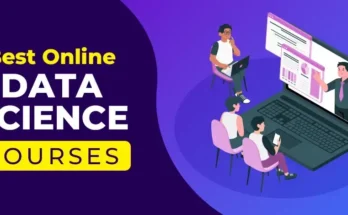When embarking on a journey into the realm of data science, one of the first questions that aspiring data scientists often encounter is related to course duration and fees. Understanding the time commitment and financial investment required for a data science course is essential for making an informed decision.
The duration of data science courses can vary significantly, ranging from a few weeks to several years, depending on the level of depth and complexity. Shorter courses or bootcamps typically provide a condensed and intensive learning experience, while longer programs, such as bachelor’s or master’s degrees, offer comprehensive and in-depth knowledge.
As for fees, they also fluctuate based on factors like the type of program, institution, and location. Online courses and bootcamps may offer more cost-effective options compared to traditional on-campus degrees. It’s crucial to consider the potential return on investment, as data science skills are in high demand in today’s job market, and a well-chosen course can open doors to exciting career opportunities.
Data Science Course Duration
The duration of a data science course can vary significantly depending on several factors, including the type of course, the level of depth, and the mode of instruction. Here, we will break down the various options available, along with their typical timeframes.
1. Bachelor’s Degree
A bachelor’s degree in data science or a related field typically takes about four years to complete. This includes a combination of general education requirements, core data science coursework, and electives. The core data science courses usually cover topics such as statistics, machine learning, data analysis, and data visualization. A bachelor’s degree provides a solid foundation in data science and can be a good starting point for those new to the field.
2. Master’s Degree
A master’s degree in data science usually takes one to two years to complete. The duration can vary based on whether the program is full-time or part-time. Master’s programs delve deeper into data science concepts and often require a thesis or a capstone project. They are designed for individuals who already have a bachelor’s degree and want to specialize in data science.
3. Bootcamps and Short Courses
Bootcamps and short courses in data science are designed to be intensive and immersive learning experiences. They typically last from a few weeks to a few months. These programs focus on practical skills and are well-suited for individuals who want to quickly acquire data science skills for specific job roles. The shorter duration makes them an attractive option for career changers and professionals looking to upskill.
4. Online Courses and MOOCs
Massive Open Online Courses (MOOCs) and online courses offer flexible learning options. They allow students to learn at their own pace, which can range from a few weeks to several months. The duration depends on how many hours a student dedicates to learning each week. Online courses are widely available and cover a broad range of data science topics. They are suitable for self-paced learners and those who may have other commitments.
5. PhD in Data Science
For those aiming for the highest level of expertise in data science, a Ph.D. program can take anywhere from 3 to 6 years or more to complete. A Ph.D. in data science involves in-depth research, dissertation work, and contributions to the field’s academic knowledge. It is intended for individuals who aspire to become experts in data science and potentially work in academia or advanced research roles.
6. Specialized Workshops and Seminars
Short, specialized workshops and seminars, which last anywhere from a few days to a few weeks, are designed to cover a specific topic or skill. These can be a valuable addition to your data science education but should not be considered as a comprehensive data science course on their own.
It’s important to note that the actual duration of any program can be influenced by factors such as the student’s prior knowledge, the institution’s curriculum, and the amount of time they can dedicate to studies. Additionally, some courses offer accelerated tracks for those who want to complete their studies more quickly, while others allow part-time enrollment for those with other commitments.
Data Science Course Fees
The cost of pursuing a data science course can vary widely based on the level of the program, the institution, and the country in which you are studying. Here, we will explore the typical costs associated with different types of data science courses.
1. Bachelor’s Degree
The cost of a bachelor’s degree in data science can vary significantly depending on the institution and the country. In the United States, for example, the annual tuition fees for a bachelor’s degree at a public university can range from $10,000 to $20,000, while tuition at a private university can be considerably higher, often exceeding $40,000 per year. Tuition costs also vary in other countries, and financial aid or scholarships may be available to offset expenses.
2. Master’s Degree
Master’s programs in data science typically come with a higher price tag than bachelor’s programs. Tuition fees for a master’s degree in the United States can range from $20,000 to $50,000 or more for the entire program. However, financial assistance, such as scholarships or assistantships, may be available to help reduce the financial burden. Costs for international students may be higher, as they often do not qualify for in-state tuition rates.
3. Bootcamps and Short Courses
Bootcamps and short courses can be a more cost-effective way to acquire data science skills. These programs often cost between $5,000 to $20,000, depending on the duration and the institution. Some bootcamps offer income-sharing agreements, where students only pay tuition after securing a job in the field, making it a more financially feasible option for many.
4. Online Courses and MOOCs
Online courses and MOOCs are generally more affordable than traditional degree programs. They can range from being entirely free to costing a few hundred dollars for a specialization or certification. The advantage of online courses is that they allow learners to access high-quality content without the significant financial investment associated with in-person programs.
5. PhD in Data Science
Ph.D. programs are often fully funded or come with a stipend, making them a financially feasible option for those who are committed to pursuing an academic or research career in data science. These programs typically cover tuition and offer a modest living allowance to students in exchange for research or teaching assistance.
6. Specialized Workshops and Seminars
The cost of specialized workshops and seminars varies widely. Some may be free or low-cost, while others can range from a few hundred dollars to a few thousand dollars. These short programs are generally more affordable but may not provide a comprehensive data science education.
It’s important to research and compare the costs of different programs and institutions to find the best fit for your budget. Keep in mind that there may be additional expenses to consider, such as textbooks, software, and housing, especially if you are studying in a different city or country.
Frequently Asked Questions (FAQ)
1. Can I learn data science on my own for free?
Yes, it is possible to learn data science on your own for free. There are many online resources, including MOOCs, tutorials, and open-source software, that can help you get started. However, pursuing a structured data science program or degree can provide a more comprehensive education and often leads to better job opportunities.
2. Are scholarships available for data science programs?
Yes, many institutions offer scholarships and financial aid for data science programs. Scholarships can be based on merit, financial need, or diversity criteria. It’s essential to research and apply for scholarships that match your profile and qualifications.
3. Can I work while studying data science?
The ability to work while studying data science depends on the program’s schedule and intensity. Many part-time, online, or evening programs are designed to accommodate working professionals. However, full-time programs may require your full attention, making it challenging to work simultaneously.
4. What is the earning potential for data scientists?
Data scientists are known to have a strong earning potential. Salaries can vary based on factors such as location, level of education, years of experience, and the specific industry. On average, data scientists can earn competitive salaries, often well above the national average.
5. Are online data science programs as valuable as in-person ones?
Online data science programs can be just as valuable as in-person programs, provided they are from reputable institutions and offer a rigorous curriculum. Many top universities and organizations offer online data science programs and certifications that are recognized by employers.
6. Can I switch to data science from a non-technical background?
Yes, it is possible to switch to data science from a non-technical background. Many data science programs are designed to accommodate students with diverse academic backgrounds. However, you may need to invest extra time and effort in learning the technical skills required for data science.
Also Read: Best Python Data Science Courses
Conclusion
The field of data science offers a wide range of educational options, each with its own duration and associated costs. Aspiring data scientists can choose from bachelor’s and master’s degrees, bootcamps, online courses, and even Ph.D. programs, depending on their career goals and financial resources.
When considering a data science program, it’s essential to weigh factors such as the program’s reputation, the quality of instruction, and the potential return on investment in terms of career advancement and earning potential. Keep in mind that the data science field is dynamic, and continuous learning is often necessary to stay current.
Ultimately, the right data science course duration and fees depend on your individual circumstances, goals, and dedication to the field. Whether you choose a formal degree program or opt for self-paced online courses, the world of data science is open to those willing to explore and harness the power of data.
Remember that the journey to becoming a data scientist is not solely about the duration and cost of your education. It’s about your commitment to learning, your passion for solving complex problems, and your ability to adapt to the ever-evolving world of data. So, embark on your data science journey with enthusiasm, and you’ll find that the rewards are well worth the investment of time and resources.




